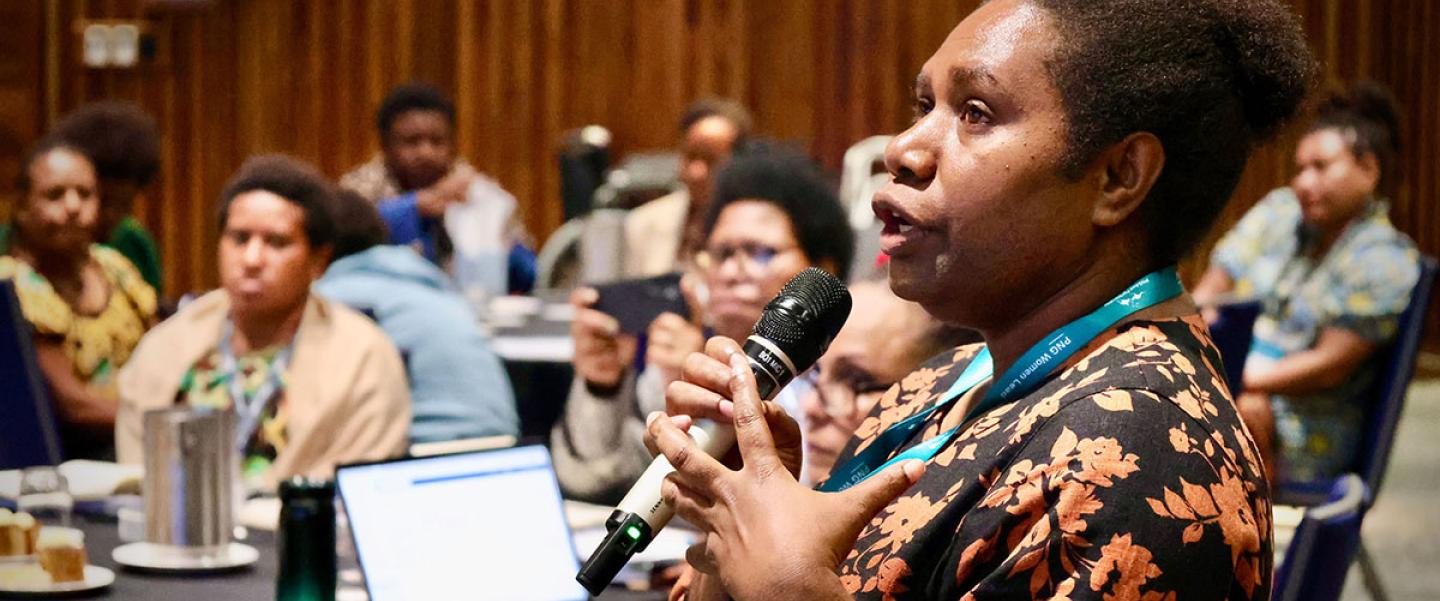HIGHLIGHTS
- Program goals: raise women’s voice in leadership and decision-making, promote women’s economic empowerment, reduce gender-based violence.
- The program advances policy reform, advocacy, civil society strengthening, improved service provision and norms change.
- It also strengthens capacity within local civil society partners to build strong coalitions and movements for transformative change.
PROJECT
Papua New Guinea Women Lead (PNGWL)
The Challenge
Papua New Guinea (PNG) ranked 154 out of 193 countries on the Gender Inequality Index in the 2024 UN Human Development Report. The country’s development is constrained by high rates of gender-based violence (GBV), limited political participation and representation of women in leadership across all sectors, and unequal access for women and girls—in particular for those with disabilities—to resources and opportunities.
The Approach
Funded by the Australian Government, the Papua New Guinea Women Lead (PNGWL) program seeks to address the country’s entrenched gender inequality by increasing women’s voices in leadership and decision-making, promoting women’s economic empowerment, and improving prevention and responses to gender-based violence.
PNGWL works closely with the Government of Papua New Guinea and civil society partners to advance gender equality in this challenging context. The program takes a politically informed, carefully measured approach to sustain reforms for gender equality delivered through implementing partners and key stakeholders.
PNGWL is committed to locally led development to enhance impact and reach. It works primarily through partnerships with local organisations and coalitions that focus on women’s empowerment and leadership, GBV prevention and response, women’s economic equality, and disability equity.
The Results
Since 2023, PNGWL’s work with local partners has contributed to policy reform, advocacy, civil society strengthening, improved service provision and norms change in PNG.
The program has broad reach, supporting activities in 20 of PNG’s 22 provinces. Through its supported projects, PNGWL has reached more than 90,000 people (38% of whom are women and 17% are girls), including more than 600 with disabilities.
PNGWL’s Partner Development Support Initiative provides an additional mechanism to strengthen local partners’ organisational capacity and sustainability planning. The program also prioritises locally led development through grants to PNG civil society organisations, local procurement and employment. For example, the program has provided technical assistance for the Women in Disability Network to develop their advocacy strategy, as called for in the PNG National Disability Policy (2015-2025).
Papua New Guineans make up 100 per cent of PNGWL’s staff, including management positions.

